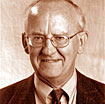Commentary on Proverbs 1:20-33
Proverbs 1 contains the first of three longer speeches given by women.
This one is in the “I” form and is critical of the audience and is not well-received (Proverbs 1:20-33). The one by Lady Wisdom in Proverbs 9:1-6 is a call to “walk in the way of insight.” Proverbs 8 is the longest of these poems and ends on an upbeat, happy note when the writer speaks of creation (Proverbs 8:22-36).
Wisdom is not the exclusive property of men. For example, we hear of a wise woman of Tekoa, Amos’ home town (2 Samuel 14:2-16; 2 Samuel 20:16-19).
Advice from a wise woman (Proverbs 1:20-33)
We are to imagine here a street preacher, a woman speaking at the city gate which is the gathering place in the town. But no one pays attention to what she has to say (Proverbs 1:22-25). Because they pay no attention to her words, not choosing to fear the LORD, they will “eat the fruit of their way” that is, they have chosen the wrong way and will be punished for that choice. The people get some needed advice, but they do not follow it and are punished for such behavior. The desire to find wisdom continues. Those who find her will be happy (Proverbs 3:13-18), honored, and given a beautiful crown (Proverbs 4:5-9).
The wise person claims to have been present at creation (Proverbs 8:22-31). And the one who keeps the ship of his or her life on the right way, high and dry we could say (Proverbs 8:32), will find true happiness. That person will always be on the lookout for wisdom, watching and waiting by the city gates (Proverbs 8:32-34).
How do I find this wisdom that leads to happiness?
This is the question everyone asks. How can I find happiness?
The Book of Proverbs speaks about the art of navigation. Here is a sampling:
- Start with God. The first step along the way to happiness is to get right with God. This right relationship is expressed in the notion of “the fear of the Lord” (Proverbs 1:7 and throughout Proverbs, such as 1:29; 2:5; 3:7; 8:13; 9:10; 15:33; 19:23; 31:30).
- Recognize God as Creator (Proverbs 8:22-31)
- Fear the Lord. The sense of “fear” is not “to be afraid of” but to honor or respect. “The fear of the Lord is the beginning of wisdom” frames the first section of the book (Proverbs 1:7; 9:10; see also 15:33). The expression runs through the entire collection of Proverbs like a pedal tone on a mighty organ, sounding the right attitude of the person seeking wisdom.
- Recognize God as Guider and Sustainer. The Creator has not abandoned the creation to run on its own (deism). God is continually working out God’s purposes in, with, and under the events happening on earth. “The human mind plans the way but the LORD directs the steps,” says Proverbs 16:9; see also 16:3; 19:21; 20:24; 21:30-31.
- Recognize God as the God of All Peoples. The materials in Proverbs are not directed only to Israel. Wisdom does not cry out in the temples or synagogues — but in the public squares, the city gates, the crossroads where people from all nations are gathered or are passing through (Proverbs 8:1-2). The wisdom teachers are open to good instructional materials from outside Israel; much of Proverbs 24:17-24:22 has been appropriated from classrooms in Egypt.
- Live Responsibly under God. The major concern of the book is not to teach about God, but rather to teach how to live a responsible and happy life on earth. Though much of the book contains what might be called secular wisdom, that wisdom is always “under God.”
Listed in the following are some of the marks of a life lived responsibly under God:
- Practicing friendship and neighborliness is one of the marks of a life lived under God. “A friend loves at all times” (Proverbs 17:17). Also Proverbs 14:20-21; 18:24; 19:4, 6; 25:17; 27:6, 10, 14.
- “She [wisdom] is more precious than jewels and nothing you desire can compare to her” (Proverbs 3:15).
- “Let another praise you and not your own mouth” (Proverbs 27:2; 16:5, 18-19).
- Enjoying and appreciating marriage as God’s gift: “House and wealth are inherited from parents, but a prudent wife is from the LORD” (Proverbs 19:14); also Proverbs 5:15-19. Appreciating one’s spouse is advised in the context of the alphabetical acrostic in Proverbs 31:10-31 (see commentary for September 23).
- “My child, keep your father’s commandments and do not forsake your mother’s teaching” (Proverbs 6:20). Also Proverbs 13:1 New Revised Standard Version footnote; Proverbs 15:5; 22:6; 23:22.
- Helping the poor, the widow, the orphan, both as individuals (Proverbs 14:21; 21:13; 22:9; 22:22-23; 23:10-11; 28:27; 29:7; 31:20, among many more examples) and as individuals in government. Such help is understood as the special responsibility of those in positions of power. “If a king judges the poor with equity, his throne will be established forever” (Proverbs 29:14). Also Proverbs 28:15; 31:8-9.
- Sexual Fidelity. The consequences of promiscuous living are nothing less than death (Proverbs 7:27 as part of 7:6-27) and also Proverbs 5:1-14, 20-23.
- Speaking and Silence. “A word fitly spoken is like apples of gold in a setting of silver” (Proverbs 25:11). Also Proverbs 11:13; 13:3; 14:7; 18:21; 21:23; 26:23; 29:11; 17:28; 18:2; 29:20; Sirach 20:5-8.
- “The hand of the diligent will rule, while the lazy will be put to forced labor.” (Proverbs 12:24) Also Proverbs 6:6-11; 10:4-5; 12:11; 20:13; 26:13-16.
Preaching from Proverbs
While these materials lend themselves to use in a classroom, preaching is more difficult. One would have to deal with longer sections (Proverbs 31:1-31) or segments with depth that invite reflection (Proverbs 30:18-19; or Proverbs 19:14). Both the 30 and 19 texts have served well for weddings. Most effective, I think, is simply reading through the book a chapter at a time and reflecting on texts that seem to hit you!
[Editor’s note: The author continues series on Proverbs in the Semi-continuous First Readings for Sept. 9 and Sept. 23, 2018.]


September 16, 2018